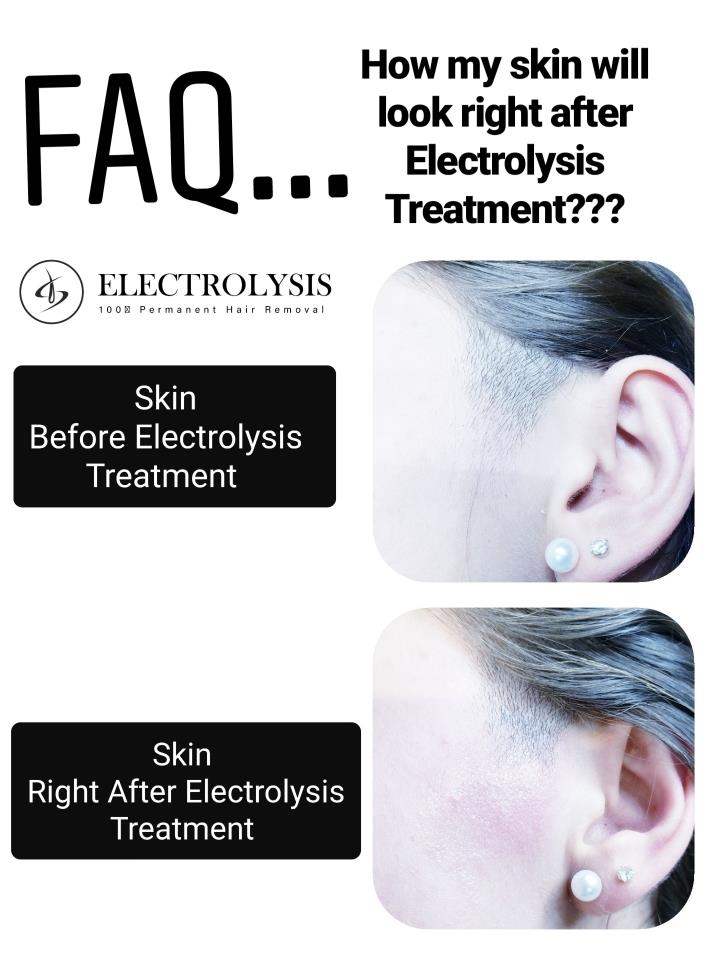Antwort Is electrolysis 100% permanent? Weitere Antworten – How permanent is electrolysis
Is it really permanent Yes. Unlike other hair removal methods that offer a temporary solution, Electrolysis is permanent and is the only FDA approved method of permanent hair removal.Expect to go through around eight to twelve sessions for a permanent result. That may seem like a lot. However, it's important to remember – the results last forever. Indeed, the Food and Drug Administration (FDA) and the American Medical Association (AMA) consider electrolysis the only permanent hair removal method.Drawbacks of Electrolysis
Multiple sessions are necessary, as each separate hair follicle naturally grows at different rates. Although both methods are safe and FDA-approved, side effects of electrolysis may include pain from the electric current, redness, swelling, scabbing, scarring or changes to skin color.
Is electrolysis more permanent than laser : Electrolysis is considered a more permanent solution than laser hair removal (it stops hair growth completely while laser hair removal slows and reduces hair growth), but it requires more individual sessions (closer to 14), and the sessions can take longer. You might not see full results for nearly 18 months.
Can electrolysis remove all hair permanently
Yes, electrolysis safely and permanently removes hair from all skin tones. It is the only FDA-approved permanent hair removal treatment. Because electrolysis permanently destroys the growth cells in the hair follicles, the hair will not grow back.
What happens when you stop electrolysis : Some hairs will grow back after electrolysis. However, as you undergo more and more sessions, the number of hairs that grow back each time decreases. If the hair doesn't regrow after more than three months, it will never come back again.
Due to the nature and cause of hair growth, there are special cases where electrolysis is not successful. Hormones and medicines can cause unwanted hair growth, and can continue to do so even after electrolysis sessions.
Because electrolysis destroys the hair follicle, hair can never grow back. It's effective for the greatest range of skin and hair types. Electrolysis is the only method approved by the U.S. Food and Drug Administration for permanently removing unwanted hair.
Why is electrolysis not popular
Dr Emma Wedgeworth, consultant dermatologist and British Skin Foundation spokesperson, explains that electrolysis has become less popular with the introduction of laser hair removal because it is much more time-consuming (hairs are zapped individually) and requires weekly appointments for a year or more.Electrolysis is very safe. Very slight risks of infection (from an unsterile needle) or scarring exist if the electrolysis is not done correctly. These risks are very low if you choose a certified, professional electrolysis practice. You may have a slight reddening of the skin during or right after treatment.Electrolysis
Those with light hair and fairer skin will struggle to see the usual impressive results – though new machines are more effective. That leaves electrolysis as the remaining permanent hair removal method used by celebrities. Its results are no less dramatic than laser hair removal.
Hormonal changes can affect hair regrowth after electrolysis hair removal. Hormones can stimulate hair growth, even in areas that have been treated with electrolysis. Hormonal imbalances, such as those caused by pregnancy, menopause, or polycystic ovary syndrome (PCOS), can result in hair regrowth after electrolysis.
Will hair grow back after electrolysis : Because electrolysis destroys the hair follicle, hair can never grow back. It's effective for the greatest range of skin and hair types. Electrolysis is the only method approved by the U.S. Food and Drug Administration for permanently removing unwanted hair.
Why didn’t my electrolysis work : Hormones and medicines can cause unwanted hair growth, and can continue to do so even after electrolysis sessions. In some cases, hair removal history and failure to follow your treatment plan can lead to unsuccessful electrolysis as well.
Who should avoid electrolysis
Absolute Contra-Indications – Requires a Doctor's Note: Diabetes, heart condition, hemophilia, pacemaker, seizures, transplant, surgery.
But, as with any treatment that ends with more or less permanent results, not everyone is pleased with their decision. While some feel freedom after banishing all the hair on their bodies for good, others express deep regret — especially given how the conversation around body hair has shifted in recent years.Kim Kardashian isn't a stranger to laser hair removal in any of those areas! She says, “I am Armenian, so of course, I am obsessed with laser hair removal. I lasered my forehead; I also lasered my neck because I had such a hairy neck.
Can hair grow back thicker after electrolysis : Because electrolysis destroys the hair follicle, hair can never grow back. It's effective for the greatest range of skin and hair types. Electrolysis is the only method approved by the U.S. Food and Drug Administration for permanently removing unwanted hair.








